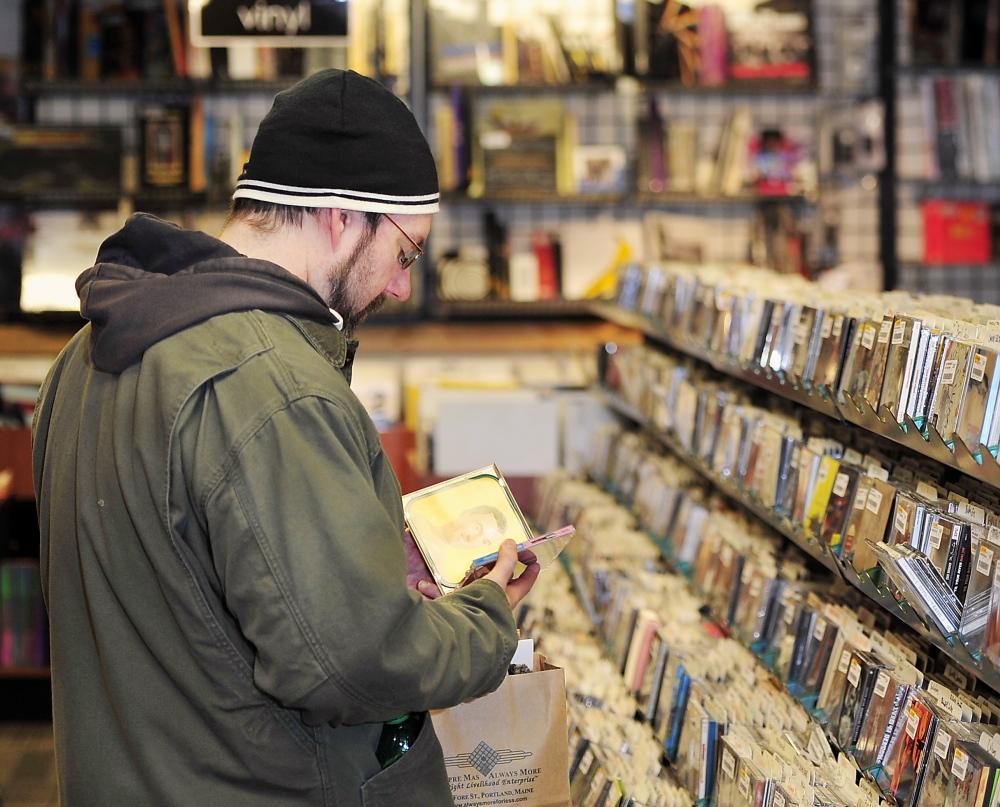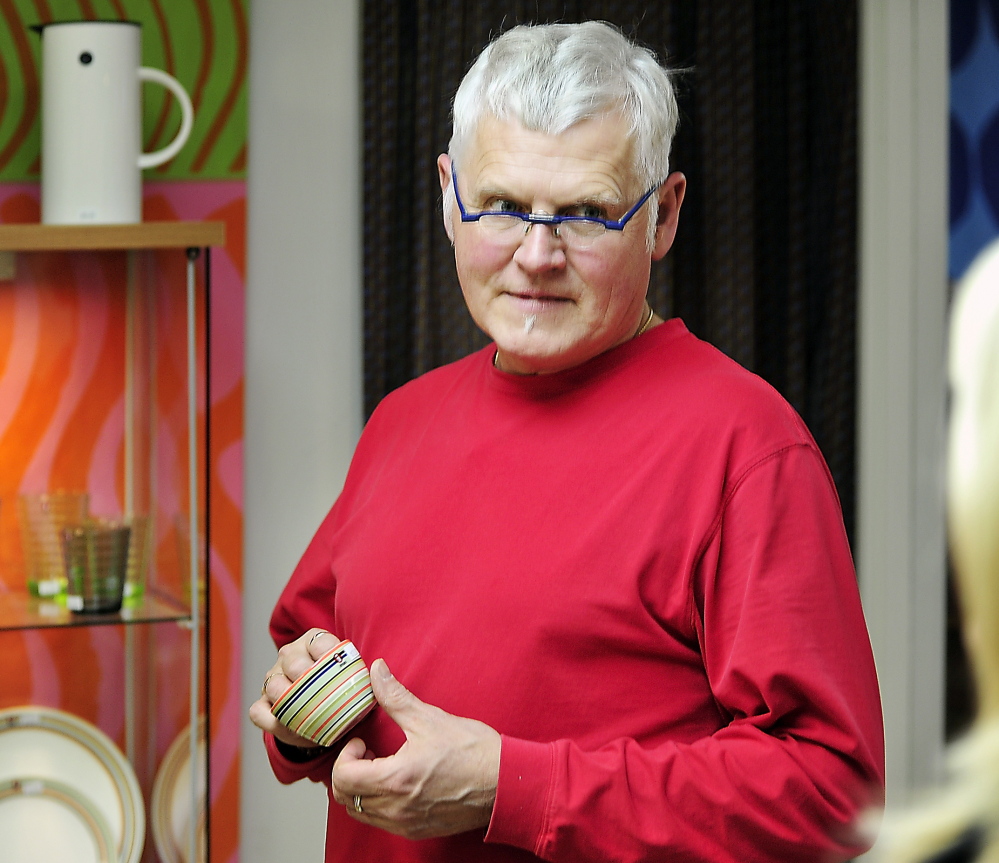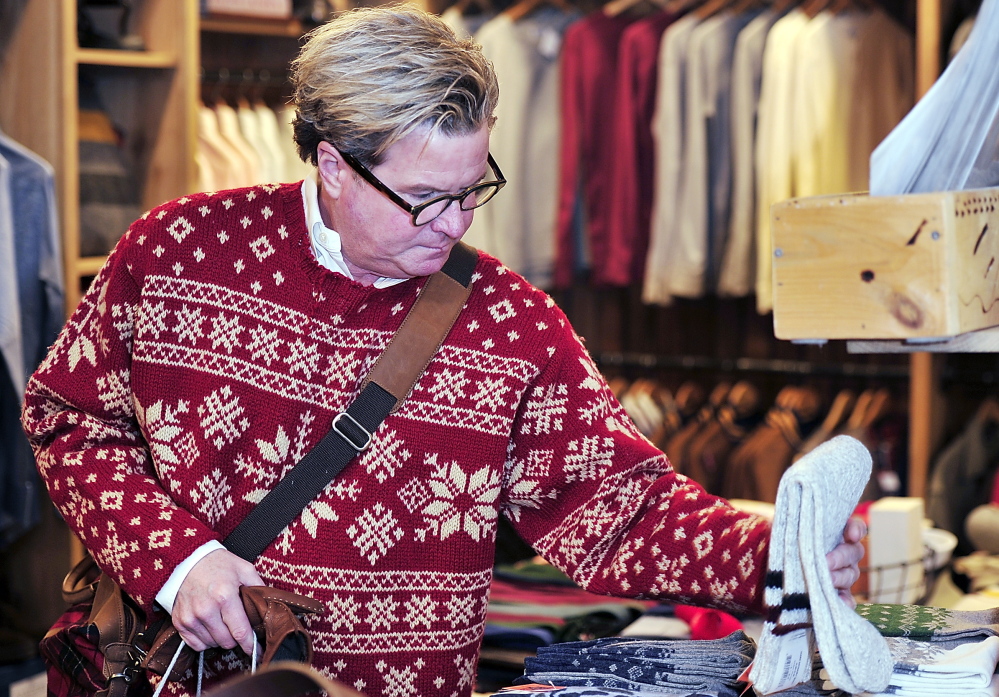Plenty of Maine retailers and economic boosters say consumers could really help the state’s economy if they buy their holiday gifts from local retailers. Now comes the tough part: getting the consumers themselves to buy in, and buy local.
There have been a wide variety of efforts to encourage local-oriented buying. “Cash mobs” gather swarms of consumers spending money to support a local store; “Pajama parades” are promotions in which stores open early to attract shoppers; and promotions such as “Plaid Friday,” a national grassroots effort, are designed to get shoppers to support independent businesses rather than national chain stores on Black Friday, the biggest brick-and-mortar shopping day of the year.
“People have a sense of it being important – what a difference one purchase can make. Even if it’s one purchase, it’s more money, jobs, and character that stay in the local economy,” said Mary Allen Lindemann, a co-owner of the shop Coffee By Design in Portland, and co-founder of Portland Buy Local, a campaign launched in 2006 to support locally owned businesses.
Lindemann said Portland Buy Local has made consumers aware how supporting local businesses helps maintain the unique identity of the community, helps to preserve entrepreneurship, and helps local merchants thrive. Yet it is a continuing struggle, she admitted. “I do occasionally shop at national stores, and it makes me stop and think, ‘Was I being lazy?’ ” she said.
Garrett Martin, executive director of the Maine Center for Economic Policy, a left-leaning think tank, said he sees signs of increased awareness among consumers of the value of buying local. “That, in and of itself, is important,” he said. “Whether it’s changing their shopping habits, it’s hard to tell.”
Yet if those habits can be changed, Martin said, they can probably be changed here. “People in Maine seem to just fundamentally get the importance of it, because they know and understand small business,” he said. “It’s fertile ground for changing behavior.”
In 2011, Martin’s group released a study on the economic impact of buying from locally owned businesses in Portland. Relying on surveys of 350 members of the Portland Independent Business and Community Alliance, it found that for every $100 spent at locally owned businesses, another $58 is generated in “local impact:” salaries, supplies purchased, advertising, utilities, and other spending. By comparison, $100 spent at a national chain store generates $33 for the local community, the study said.
The study also claimed that shifting just 10 percent of consumer spending in Cumberland County from national chains to locally owned businesses would result in an additional $127 million in economic activity, with 874 new jobs generating over $35 million in wages.
“Even a little bit of a behavior shift makes a difference to a community,” Martin said. “The old economic model for states used to be landing that big fish retailer to locate in your back yard. Now, I do believe that people are realizing that may not be the best way to grow a community and plug the leakage in the local economy.”
A new Portland company called Buoy Local is trying to both benefit from and encourage the “buy local” movement. It sells a single gift card that can be redeemed at a variety of stores in the city. The new company sold $12,000 in cards in its first two weeks of business, and aims to sell as much as $20,000 in cards by Christmas, said co-founder Kai Smith.
“Local shopping is a growing area,” Smith said. “There are always horror stories about Walmart and negative media attention about big box retailers. People want to shop and support businesses that are creating local jobs.”
Even a national advertising campaign, such as the American Express Small Business Saturday initiative, will promote the idea of buying local. To counter the sales promotions at national chains on Black Friday, the Small Business Saturday campaign encourages shoppers to support their local stores on the Saturday after Thanksgiving.
This year, consumers spent $5.7 billion on Small Business Saturday, up from $5.5 billion a year ago, according to research published by American Express and the National Federation of Independent Business. The 2013 data was extrapolated from online surveys of 1,000 adults, the firms said.
Of course, Small Business Saturday is a fraction of overall holiday retail spending. The National Retail Federation expects sales in November and December to total $602 billion, up 3.9 percent from last year. The breakdown of how that money will be spent – whether it’s done at national chains, online and at local stores – was not available.
Nicolei Andrade of Portland, who was shopping at Bull Moose, a music, video, and gaming store in Portland, said he likes to shop locally because he appreciates the interaction with shopkeepers, who can make recommendations and share their expertise.
“I find things locally that I never would see online,” Andrade said. “Part of it, too, is just getting out of the house. Interacting with people – you can’t get that at your computer.”
Brady Alden of Gray, who was also shopping at Bull Moose, said he likes the vibe of local stores because shopping online seems much more sterile.
“I like to wander around and stop into local stores. I think you find better stuff – things you weren’t even looking for that catch your eye. It’s much more appealing to see what grabs you in the moment,” Alden said.
As he shopped at Portland Trading Co., Steve Campbell said he lives and works in the city, and believes that buying local is a way to support his neighbors.
“I like the sense of community. I live and work in the neighborhood and shopping here helps feed the neighborhood,” Campbell said. “It’s also much more tactile to be able to shop in person. No matter how exciting an app is, you’re not feeling, smelling or tasting the item.”
At least one business owner says there’s still work to do when it comes to convincing people to shop local. Thomas Grant, owner of Simply Scandinavian, an importer of Scandinavian gifts and food in Portland, said he sees a number of shoppers who come in to get ideas, and then shop for a similar item online.
“If people continue to shop in that manner, they are impeding their neighborhood and the businesses here,” Grant said. “I see a lot of good publicity about ‘buy local,’ but I see more people from away shopping on vacation than people from the neighborhood here.”
Jessica Hall can be contacted at 791-6316 or at:
jhall@pressherald.com
Twitter: @JessicaHallPPH
Send questions/comments to the editors.





Success. Please wait for the page to reload. If the page does not reload within 5 seconds, please refresh the page.
Enter your email and password to access comments.
Hi, to comment on stories you must . This profile is in addition to your subscription and website login.
Already have a commenting profile? .
Invalid username/password.
Please check your email to confirm and complete your registration.
Only subscribers are eligible to post comments. Please subscribe or login first for digital access. Here’s why.
Use the form below to reset your password. When you've submitted your account email, we will send an email with a reset code.